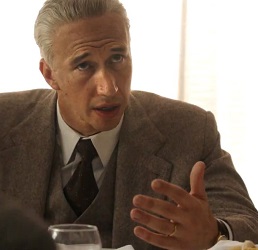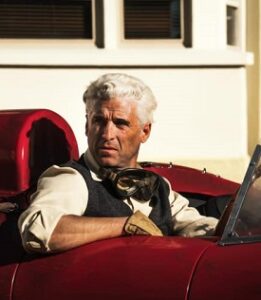Ferrari
 In 1957, the European auto racing industry was at a crossroads. The two primary Italian racing teams – Ferrari and Maserati – were struggling to continue to fund their racing enterprises because they simply did not sell enough cars to the public. The two manufacturers were seeking partner relationships with other auto makers, including Fiat and even Ford (although neither really wanted to partner with an American firm). The problem with such partnerships is that neither Ferrari nor Maserati wanted to cede control to others.
In 1957, the European auto racing industry was at a crossroads. The two primary Italian racing teams – Ferrari and Maserati – were struggling to continue to fund their racing enterprises because they simply did not sell enough cars to the public. The two manufacturers were seeking partner relationships with other auto makers, including Fiat and even Ford (although neither really wanted to partner with an American firm). The problem with such partnerships is that neither Ferrari nor Maserati wanted to cede control to others.
Not a biography
This is the setting for Michael Mann’s new film “Ferrari.” It’s not so much a biography of Enzo Ferrari as it is a snapshot in time. Ferrari (aptly played by the versatile Adam Driver) must struggle with the current landscape of the European motor sports industry, while also juggling his troubling personal life.
Best performance
Ferrari’s wife Laura also acts as his business manager and accountant. Nothing in the company occurs without her approval. She’s played by the always excellent Penelope Cruz, who offers the finest performance in this ensemble. She’s feisty and driven – almost as much an Enzo himself – and she’s not afraid to cross Enzo when she feels the need to do so. It never ceases to amaze me how Cruz can lift any film with her acting. Here, she raises a so-so effort to a decent picture with her portrayal of the second-most dominant character in the cast.
Miscast Woodley
Enzo and Laura Ferrari had a son Dino, who was killed racing during the previous year. While the Ferraris are coping with this tragic loss, Enzo is also funneling funds to a lady named Lina Lardi, with whom he had an extramarital affair toward the close of World War II. She’s played by the somewhat miscast Shailene Woodley, who is simply too young for the role. Concerned about producing an heir to the Ferrari fortune, Enzo has provided for the boy financially since Dino’s passing. Laura is oblivious to the boy’s existence – which is ironic, given her total control over the company’s finances.
No likeable characters
So, Enzo Ferrari is portrayed as a boor, as the assumption is that he would not have any interest in the boy were Dino still alive. And Laura looks out for herself only, in terms of the financial health of the company. Hence, there’s really no likeable primary character in “Ferrari,” which the major flaw in Troy Kennedy Martin’s adapted screenplay. It’s based on Brock Yates’ 1991 novel, “Enzo Ferrari: The Man, The Cars, The Races, The Machine,” which undoubtedly paints a sour portrait of the Ferrari empire of the 1950s. Still, we long for someone we can root for, and such a character simply does not exist.
 The Mille Miglia
The Mille Miglia
Enzo banks the survival of the Ferrari empire on his cars’ performance in the 1957 Mille Miglia – a 1000-mile race around the rural highways and byways of Italy, which was held almost annually between 1927 and 1957. Ferrari entered four cars in the race – one of which was destroyed in a terrible crash resulting in the deaths of the driver and ten spectators, including five children. Following this race, the Mille Miglia was discontinued, and Italy banned auto racing on public roads. It would have been nice to learn this via the titles at the end of the film, but instead they only provide information regarding the lives of the primary characters.
Great racing scenes
As expected, Mann – a director most associated with crime dramas and action films – shoots the racing scenes with tremendous accuracy. We’re on the edge of our seats with some of the tight Ferrari vs. Maserati racing sequences. Kudos to cinematographer Erik Messerschmidt, who has never worked with Mann before.
Not particularly interesting
But sharp action scenes don’t make or break a film. What would “Top Gun: Maverick” have been without an interesting story to accompany the stunts and special effects? And that’s the problem with “Ferrari.” The action is great, but with no character to attract our interest, the film simply falls flat. It’s certainly not horrible; it’s just not particularly interesting. And this time, even Penelope Cruz can’t save it.
Andy Ray‘s reviews also appear on https://townepost.com/.